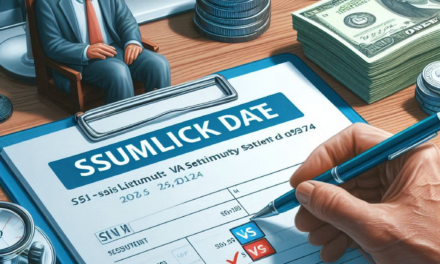Competitive Start Fund – Fuelling Innovation and Entrepreneurship
Competitive Start Fund – In today’s fast-swirling global economy, innovation and entrepreneurship have become the driving forces behind economic growth and competitiveness. Making it even worse: governments and private institutions are starting to understand that they need startups (or fast-growing tech companies) more than they think, for jobs growth or economic development. Among its initiatives, one has emerged as very impactful which is Competitive Start Fund (CSF). This article explains the function, design, case stories and broad wavelength of CSF discussing how it helps growing newbies into entrepreneurs.
Rekeying the Competitive Start Fund
The Competitive Start Fund is a government backed scheme with developed to inject early-stage funding into high-potential, export-oriented startups at moments when such young companies need it the most. It aims help early-stage startups with their go-to-market, product and service development — assisting them to transform these ideas into a scalable business. By providing funding, CSF will support projects at the interface of idea generation and commercial efficacy.
What is the Competitive Start Fund? Key features of CSF
Seed Funding- This is the initial seed funding these can be of a small amount like $50,000 to start with and it ranges up to an average investment size between ($US 100K-$ K) In Cr. This initial investment is important to cover the early cost of product development, market research etc.
Equity Investment – The CSF receives a share of the startup in exchange for its investment. This way the fund actually owns a part of company and therefore aligns their interests with those of entrepreneurs.
Targeting: The CSF typically focuses on particular sectors or industries that are of strategic importance, often with higher growth prospects. That could be anything from technology, healthcare or green energy etc.
Mentorship and networking: Apart from funding, the CSF also gives startups exposure to its pool of mentors, advisors & industry professionals. It is advice that can be invaluable for overcoming the traps of early-stage growth.
Milestone Based Funding: As a way of ensuring continuous progress in the funded startups, CSF often disburses funds in tranches based on certain pre-defined milestones. This makes startups stay focused and responsible for their work.
Application and Selection Process
The Competitive Start Fund application process has been designed to help find and fund the best startup companies from around Ireland. The following are standard items of things involved:
Applicant Application: Entrepreneurs complete a comprehensive application detailing the facets of their business case, market opportunity, development stage and funding requirements. This application is typically accompanied by a business plan, financial projections and the founder of team profile.
Screening and Shortlisting – A review panel drawn made up of expert assess the viability & potential impact of a business from declared intentions. Shortlist of all the startups that fulfill the criteria.
Cohort – Pitching and Interviews: The startups shortlisted in the previous feature are invited to pitch their solutions before a panel of judges. An opportunity for entrepreneurs to share their vision and business model, to learn what growth methods are best fit. The panel also does interviews to get a better feel of the startup.
Final Round: The last leg of the event; after all the pitches and interviews, promising startups are chosen to be funded. Key The selection criteria often revolve around how much of disruption the idea is bringing, what scale does it have in market sizing perspective and can be scaled up easily by a vivid working founding team.
A couple of months back, GHV has announced the call for application for fresh investments where in 8 new startups would be selected to receive initial tranche and support from their mentors/ advisors. The fund regularly checks on their progress to gives them additional support, if necessary.
Success Stories
The abiding influence of the Competitive Start Funds can be judged by number of startup success stories that have thrived under its aegis. Several of these companies have gone on to reach major milestones, secure further funding and add value in their core marketplaces.
Case 1: HealthTech Innovators
One good example is a health tech startup that designed a new kind of medical device to track and control chronic disease. Seed funding from the CSF allowed them to finish up their product development and put it through a clinical trial. The startup has since landed more backing from venture capitalists and signed partnerships with some of the largest health systems. Thousands of patients use its device today, which improves their lives and cuts healthcare expenses.
Use Case 2: Green Energy Pioneers
And the final example is an early-stage green energy startup working on advancing solar panel technology. Funding from the CSF helped to see this prototype realise and its extensive testing through. The startup’s technology was judged to be more efficient and cheaper than what came before, attracting interest from a raft of investors. The company has since scaled up its operations, entered into new markets and played a part in moving the world towards clean energy.
Example 3: Tech Disruptors
The platform helped a tech startup, who had developed an AI-powered solution for automating business processes and was recently closed down. After the initial investment, Senti Sum honed its algorithms and get a beta of their platform to market. The client onboardings were substantial and the feedback was glowing; it seemed as if we had a winning startup on our hands. With ongoing support and strategic advice from the CSF network, their business quickly gained traction as they won major contracts that allowed them to establish a foothold in the market.
NEED OTHER ISSUES TO CONSIDER THE CSCF?
The impact of the Competitive Start Fund goes far beyond any individual success stories. The CSF is also geared at establishing an environment that encourages and bolsters innovation with open applications to new startups, which not only plays a direct role in fostering future companies, addressing challenges of global significance but can help achieve broader economic goals for the region including contributing to:
Job Creation
First, startups are a critical engine of job creation for our economy-especially in the early stages of their trajectory. Its provides funding and backing to startups that will be used to enable them hire talent, scale their teams – creating new employment opportunities. The resulting job creation has ripple effects improving local economies and communities.
Economic Growth
Superficially, innovation is one of the main growth engines. They are responsible for keeping up productivity and competitiveness by bringing new products, services, and technologies to market. The CSF is increasingly important in supporting further innovation by today’s companies, which overall benefits the economy and our society.
Industry Disruption
Commonly, startups are founded to challenge the conventional ways that many industries operate by introducing new innovative technologies and ideas. The CSF does this by backing those disruptors, which contributes to a competitive market for development opportunities and spurs growth throughout the industry.
Global Competitiveness
Fostering innovation in a globalized economy is paramount to securing / ensuring sustenance of as well as improving upon. The CSF facilitates the global scale-up success of startups, asserting them as leaders in their respective sectors and enhances Singapore’s image as an innovation hub.
Future directions and Challenges
The Competitive Start Fund has had its wins but also finds itself up against some roadblocks. The issues of funding equitable startups, transparency in the selection process and support post-money have still not been addressed fully. The scope and tactics of the CSF must change as industries evolve, and so does technology.
On the upside, CSF could well be on course to grow and have wider influence in future. That potential might range from scaling up and expanding the number of sectors covered by a fund, to how it can interact with other funding sources or innovation ecosystems. Persistent change will enable the CSF to remain an essential driver of innovation and entrepreneurship.
Conclusion
The Competitive Start Fund is a key initiative to encourage innovation, support for early-stage companies and drive economic growth. Seed funding, mentorship and global networking access by the CSF have been instrumental in enabling early-stage companies to launch their products. Some of the startups which have benefitted from this fund are stories in successful development and mark for its very necessity graciously. In a world where our global economy continues to change, initiatives like the Competitive Start Fund – if well-executed and expanded upon to not limited sectors or skill sets- hold the key in defining what innovation looks like tomorrow.





